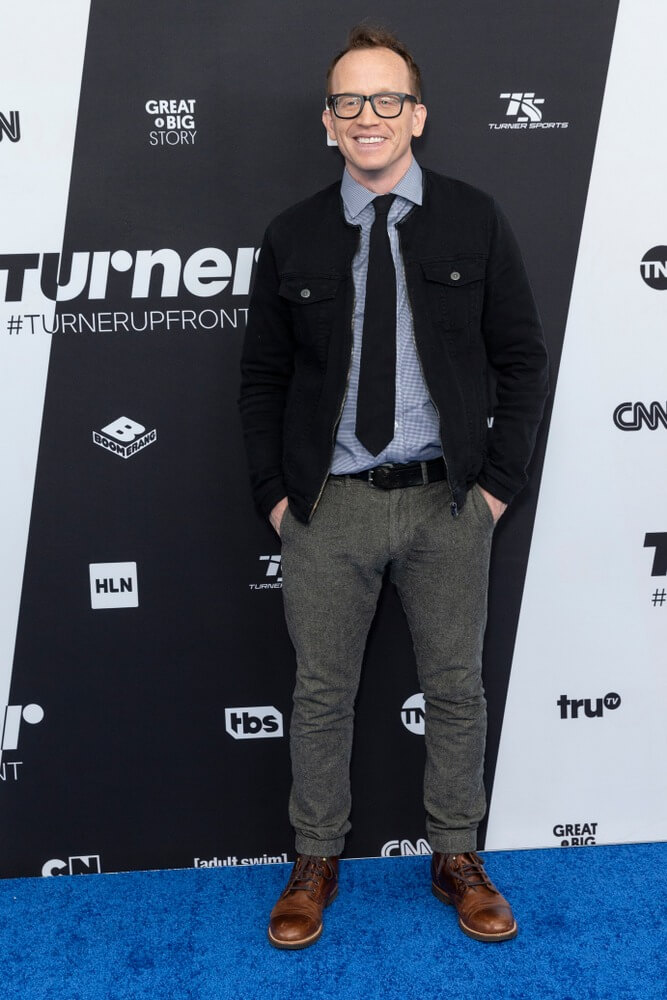
Chris Gethard is an actor, comedian, and writer who is known for his 2017 HBO stand-up special “Career Suicide,” based on his off-Broadway show of the same name. In the genre of self-disclosure monologues, Gethard delves into the topic of his personal sufferings with the belief that whatever makes people healthier will ultimately make them better at what they do. In a Big Think interview, Gethard shares how the lessons he learned through improv not only help his comedic acting skills, but enrich his personal relationships as well.
The key to improv
Improv is based on a respectful and encouraging mindset. Gethard insists, “The key to improv is always listening. It’s embracing. It’s positivity. It’s hearing things and not shutting them down. It’s trying to find ways to make them work. In the business world, I would imagine that’s very invaluable—the idea that it’s very frustrating just to be told ‘no’ all the time. Improv really revolves around the idea of whatever you come at me with, I’m going to say ‘yes’ to it; that’s our reality; let’s get to work.” Instead of focusing on what might be wrong with an idea, improv requires performers to really listen to what others have to say. “It’s a pretty beautiful thing when it’s going right,” Gethard says.
Stay in the present
During improv classes, Gethard notices the students tend to move away from the here and now when they feel pressure. He explains, “Very often what you’ll see happen in improv class is when people get nervous about how it’s going, they’ll start saying, ‘Hey, when Dad gets home, he’s going to be really mad.’ Or they’ll say, ‘Hey, when we get to Reno, stuff’s really going to hit the fan.’ And they start saying, ‘Hey, remember when you did that thing back then? I’m really mad about it.’”
Gethard believes listening is most powerful when it occurs in the present, as opposed to reflecting upon the past or imagining the future. “I always ask people to answer these three questions when they’re improvising: Why these people? Why right here? Why right now?” he says. “If you’re in a scene and there’s two people and you’re talking about people who aren’t here—like they’re not here! They probably aren’t the most interesting thing for an audience to hear about. If you’re talking about a different location than the one the scene is taking place in, then why isn’t the scene unfolding there? It sounds more interesting.” Gethard likewise uses this improv principle in his personal life, as he applies it to conversations he has with loved ones.
Simple choices can get huge reactions
Gethard has been described as “one of the most empathetic performers of his time,” and his “Career Suicide” comedy show as “a masterclass in storytelling.” When it comes to improv, he is most interested in human connection. He shares: “In improv, your simple choices can actually get huge reactions because if you and I were doing a scene, and I came at you and started the scene by saying, ‘You know what? Everything that happened in Canada, we can never talk about it again.’ That sounds like it has really high stakes. But now the audience has to figure out what happened in Canada and why are we all scared of it? Whereas if I just looked at you and said, ‘Hey, I’m so scared, and I need you to help me through it,’ that sounds like a more vague thing with less comedic potential, but an audience will go, ‘They’re scared, and you have to help each other. Why are they scared?’ … It’s a human connection that we can latch onto. So being present in the moment with each other, nothing else, you’re going to work out. It’s going to make your improv scene so much better.”
Slow is fast
The New Jersey native is a big fan of the phrase, “Slow is fast.” He explains, “We forget that when we’re on stage and we’re improvising, we’re bouncing ideas back and forth, it’s really hard for [the audience] to keep up. They don’t really know why we’re making the choices we’re making because we’re trained in this, and we have classes in this, so … to them it looks like it’s moving a million miles an hour.” He reminds performers to take a breath and refrain from piling on joke after joke. “We have to remember when we’re improvising, it’s sort of like building a fire,” Gethard says. “You have to start with the kindling, you have to start with just a spark. You can’t just throw the big logs on. If you just try to pile anything on, it’s not going anywhere.” He advises, “When we consciously take a breath and slow down, it demonstrates a confidence and mastery of our craft.”
Casting Frontier has new casting calls and auditions added daily! Sign up or log in to Casting Frontier and book your next role today!
Related articles:
Tips from Commercial Casting Directors
5 Commercial Acting Tips
Make the Most of Your Commercial Callbacks




